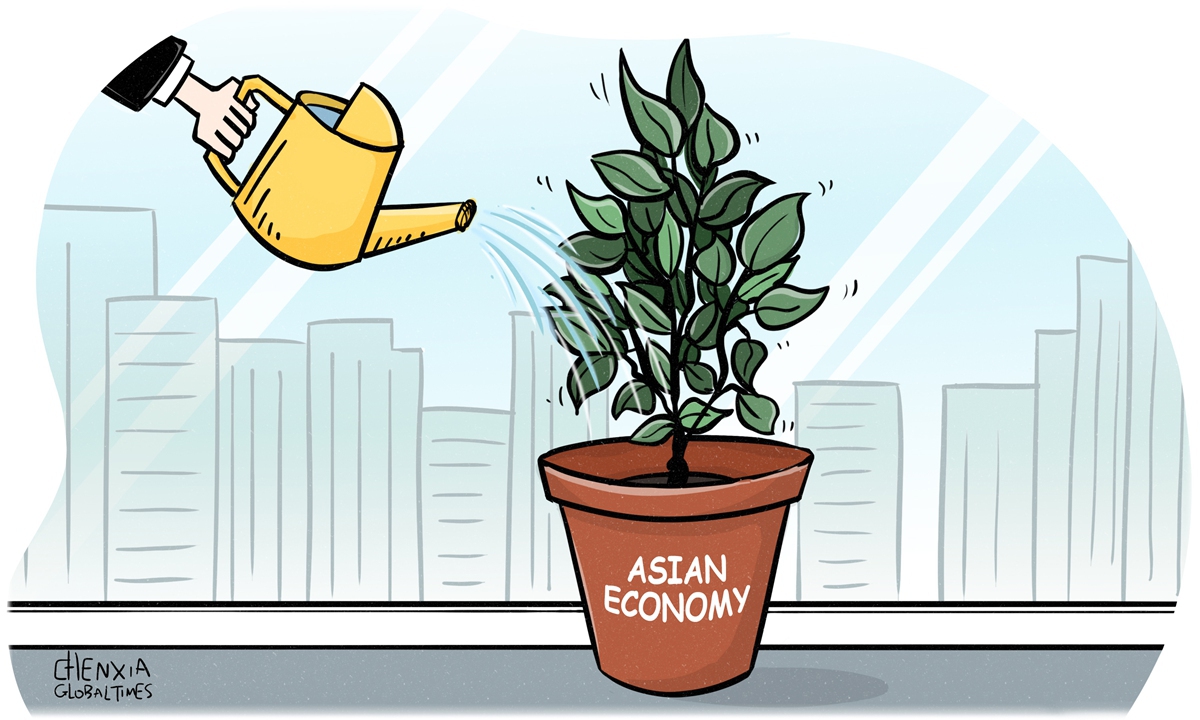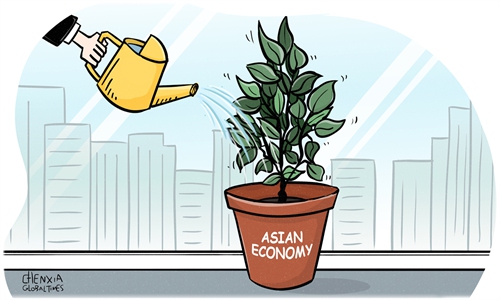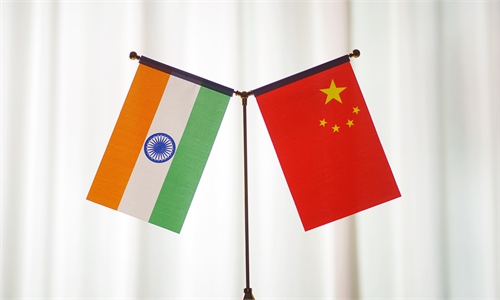GT Voice: Asia sees renewed opportunity in financial cooperation amid currency shocks

Illustration: Chen Xia/Global Times
There was a time when Asian economies made concerted efforts to promote regional financial cooperation in the wake of the 1997-98 Asian financial crisis, with the view of enhancing their ability to withstand outside financial risks. Now financial coordination is no longer the focus of regional economic development, but under the growing threat of the stronger US dollar, the intensifying wave of depreciation of Asian currencies seems to have offered a renewed opportunity for regional countries to once again facilitate financial cooperation.As both the Chinese yuan and the Japanese yen weakened significantly against the US dollar, Asian markets "risk a reprise of crisis-level stress," Bloomberg reported on Monday.
There is no denying that the continuous interest rate hikes by the US Federal Reserve have kept the dollar strong, putting downward pressure on Asian currencies and thus contributing to the spiraling risks of a crisis in Asian markets. Since the Fed made another large interest rate hike on Wednesday, major Asian currencies have weakened sharply against the dollar.
Moreover, as there is a sharp depletion in the foreign exchange reserves among emerging Asian economies, concerns are on the rise that it may curb their ability to defend their currencies in the face of the mighty dollar. According to data from Standard Chartered, for most emerging Asian economies, the number of months of imports a country can finance using foreign exchange reserves has dropped to about seven, the lowest since the global financial crisis in 2008. The market expectation of further depreciation of Asian currencies has also led to the continued outflows of foreign capital, exacerbating fears of a possible return of the Asian financial crisis.
In this context, a closer look at the past financial cooperation of Asian economies in the aftermath of the Asian financial crisis still has relevance in terms of guarding against outside financial risks, and most importantly, avoiding the potential crisis for the region.
In 1997, the appreciation of the US dollar precipitated hot money flows to return to the US, exposing the weakness of the Southeast Asian economies and thus triggering the Asian financial crisis. Asian currencies collapsed one after the other, and even large economies like China and Japan were also affected by the crisis.
It is under such circumstances that East Asian and Southeast Asian economies recognized the need for financial cooperation in the region. Thus, in an effort to improve the region's overall capability to withstand external financial risks, ASEAN, China, Japan and South Korea signed the Chiang Mai Initiative, the Asian Bond Markets Initiative, and the Asian Currency Unit Initiative. At that time, these initiatives made progress and played an effective role in preventing and defusing financial risks.
Yet, Asia's financial cooperation has gradually lost momentum over the past two decades with major changes taking place in the global economic and geopolitical landscape. For instance, Japan used to play a dominant role in Asia's financial cooperation, but now Japanese politicians are busy courting the US on regional economic and trade policy. In the name of safeguarding "economic security," some Japanese politicians are clamoring for a "decoupling" from China to bring fragmentation to the regional supply chain, which is short-sighted and detrimental to regional economic integration.
However, it is important to note that despite the geopolitical challenges, regional cooperation and coordination remains a solution for Asian economies in the face of crises. While the economic landscape has changed a lot, there is still foundation for economic integration in Asia. Indeed, against the backdrop of the new geopolitical reality, it is still essential for ASEAN, China, Japan and South Korea to strengthen their financial cooperation that began 25 years ago. In other words, the currency depreciation and rising financial risks have provided an opportunity for them to restart financial cooperation again.
It is worth mentioning that China is also actively deepening its financial cooperation with ASEAN as a means of boosting regional economic and trade cooperation under the Regional Comprehensive Economic Partnership (RCEP) and promoting the building of China-ASEAN comprehensive strategic partnership.



